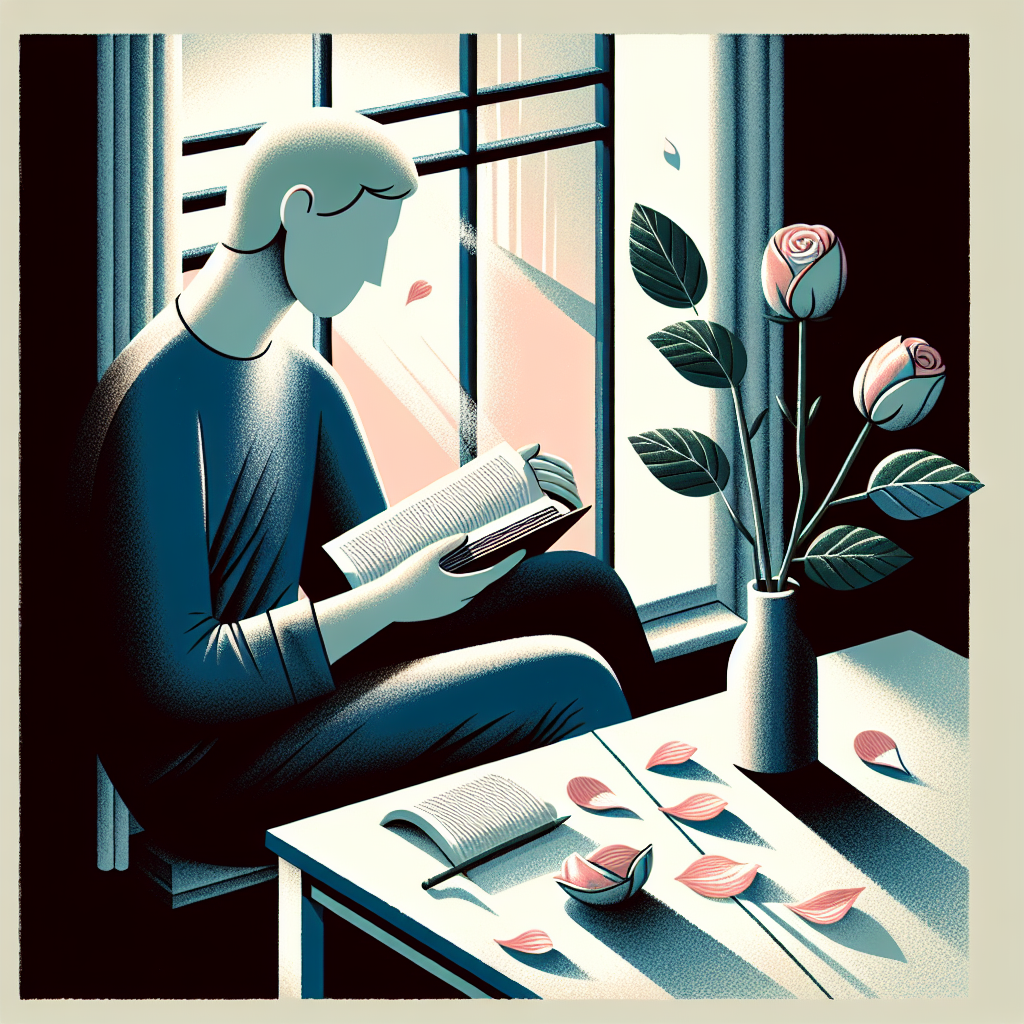The Heartbreak That Hooks Us: Understanding the Unrequited Love Trope in Romance Literature
There's something achingly beautiful about loving someone who doesn't love you back. It's a universal experience that cuts deep, leaving scars that sometimes never fully heal—and perhaps that's exactly why the unrequited love trope remains one of the most compelling themes in romance literature.
At its core, unrequited love occurs when one character experiences deep romantic feelings for another who simply doesn't reciprocate. Whether the object of affection sees them merely as a friend, remains completely oblivious to their feelings, or actively rejects their advances, the result is the same: a painful one-sided emotional journey that readers find impossible to resist.
The Magnetic Pull of One-Sided Romance
Why Our Hearts Ache for These Stories
The enduring popularity of unrequited love stories isn't masochistic—it's deeply human. These narratives tap into primal emotions and experiences that transcend cultural and temporal boundaries.
Emotional Intensity at Its Peak Unrequited love stories are emotional powerhouses. They explore the full spectrum of human feeling: desperate longing, crushing disappointment, jealous rage, and tender hope. Readers experience every flutter of anticipation when the protagonist catches their beloved's eye, and every devastating moment when reality crashes back in.
The Mirror of Experience Few people escape life without experiencing unrequited feelings. Whether it was a childhood crush, a college infatuation, or adult romantic disappointment, most readers carry their own wounds from one-sided love. This shared experience creates an instant, visceral connection between reader and character.
Character Development Through Suffering Pain, while unpleasant, often catalyzes the most profound personal growth. Characters navigating unrequited love must confront their self-worth, learn to set boundaries, and ultimately decide whether to fight for what they want or find the strength to walk away. This journey of self-discovery resonates with readers seeking their own emotional evolution.
The Delicious Torture of Uncertainty Will they or won't they? The question drives readers forward, page after page. Unlike mutual attraction stories where the outcome feels more predictable, unrequited love maintains genuine suspense. The beloved might have a change of heart, or the protagonist might find unexpected love elsewhere—or learn to love themselves enough to let go.
From Heartbreak to Hope: The Transformation Journey
The Alchemy of Emotional Growth
The most satisfying unrequited love stories don't wallow in misery—they transform it into something meaningful. This metamorphosis takes several powerful forms:
Discovering Self-Worth Characters often begin by believing they must earn love through sacrifice and devotion. Through their journey, they learn that love freely given should be freely received, and that their worth isn't determined by another person's feelings.
Unexpected Love Sometimes the best love stories aren't about getting the person you thought you wanted, but discovering the person you actually needed. These narratives remind us that love often arrives in forms we don't anticipate.
The Power of Timing Some unrequited love stories explore how circumstances, maturity, and timing can shift everything. The person who couldn't see you at eighteen might recognize your worth at twenty-eight—or you might realize you've outgrown them entirely.
The Strength to Walk Away Perhaps the most empowering resolution comes when characters choose themselves over fruitless pursuit. This isn't giving up—it's recognizing that some doors aren't meant to open, and that's perfectly okay.
Five Flavors of Heartbreak: Common Unrequited Love Scenarios
1. The Friend Zone Dilemma
The classic "friends to lovers" story with a twist—only one friend harbors romantic feelings. These stories excel at showing the delicate balance between preserving a valued friendship and honoring genuine romantic feelings. The internal conflict is exquisite: confess and risk losing everything, or suffer in silence while watching them date others.
2. Love Triangle Torture
When your heart belongs to someone whose heart belongs to someone else, the emotional complexity multiplies. These stories explore jealousy, self-doubt, and the painful question of whether love is enough when you're not the chosen one.
3. Forbidden Desires
Sometimes love goes unreturned not due to lack of feeling, but because of external barriers—family disapproval, social expectations, or personal circumstances that make romance impossible. These stories examine how society and situation can thwart even the most genuine connections.
4. The Growth-Focused Journey
Not all unrequited love stories center on whether the love will be returned. Some focus primarily on how the experience changes the person doing the loving. These character-driven narratives explore themes of resilience, self-discovery, and emotional maturity.
5. Professional Complications
Workplace crushes add layers of complexity to unrequited love. Power dynamics, professional reputation, and career advancement all become factors in stories where love and livelihood intersect uncomfortably.
Literary Legends: Timeless Tales of One-Sided Love
The unrequited love trope has deep literary roots that extend far beyond contemporary romance:
Shakespeare's Broken Hearts Before Romeo found Juliet, he pined desperately for Rosaline, who remained unmoved by his ardent pursuit. This early example shows how unrequited love can serve as character development, preparing protagonists for their true romantic destiny.
Austen's Social Commentary In Pride and Prejudice, Mr. Darcy's initial unrequited feelings for Elizabeth Bennet serve multiple narrative purposes—character growth, social commentary, and the satisfaction of eventual mutual love. The transformation from rejection to acceptance mirrors both characters' personal evolution.
Fitzgerald's American Dream Jay Gatsby's obsessive love for Daisy represents not just unrequited romance, but the broader American tragedy of pursuing impossible dreams. His inability to accept that Daisy can't return his idealized love becomes a metaphor for the corruption of the American Dream itself.
The Enduring Appeal: Why We Keep Coming Back
Unrequited love stories endure because they validate our deepest emotional experiences while offering hope for transformation. They acknowledge that love doesn't always work out as planned—and that this can be both devastating and liberating.
These narratives serve as emotional catharsis, allowing readers to process their own experiences of rejection, longing, and eventual healing. They remind us that unreturned love, while painful, can be a catalyst for incredible personal growth and unexpected joy.
Whether the story ends with romantic fulfillment, peaceful acceptance, or the discovery of love in unexpected places, unrequited love tales offer something precious: the assurance that our feelings matter, our pain has purpose, and our hearts are resilient enough to love again.
In a world that often dismisses emotional pain as weakness, unrequited love stories stand as testament to the strength required to love without guarantee—and the wisdom that sometimes comes from learning when to let go.
💝 Ready to Explore More Romance?
If you enjoyed this article about Romance writing, discover thousands of captivating love stories on our platform.
Download App







